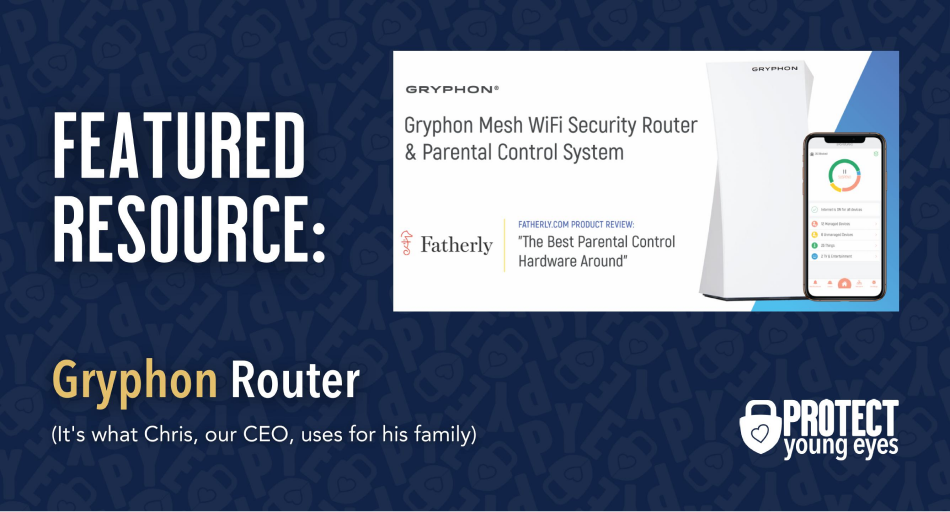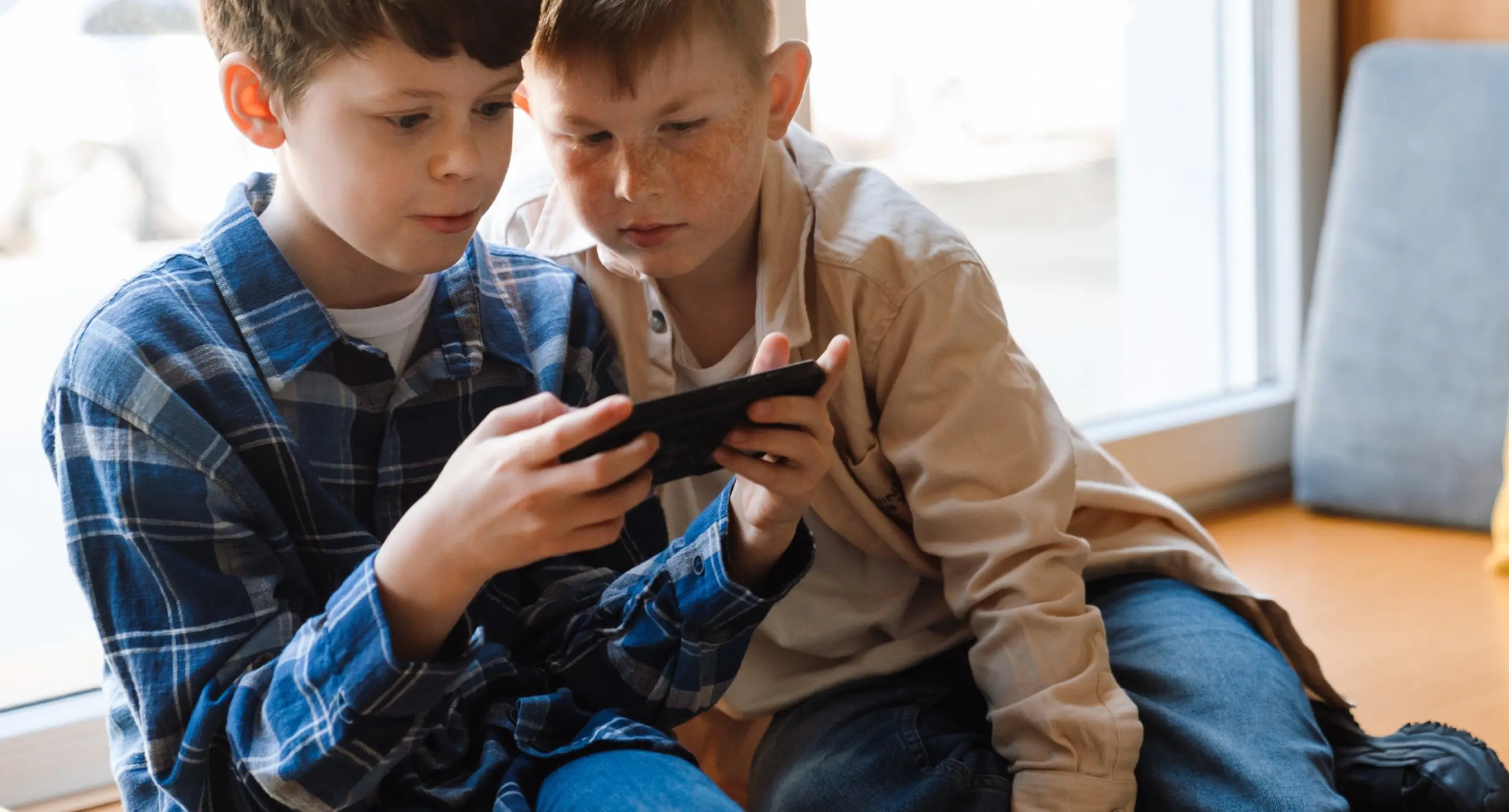Join the Movement - Sign the Delay Manifesto 📑


Peer-on-Peer Sexual Abuse. Nurses Point to Porn.
A Kansas City hospital has seen a horrifying increase in peer-on-peer sexual abuse among children and they have a theory on what is causing it. “Last year, Children’s Mercy saw 444 kids who were sexually abused within the last five days (of arriving at the hospital). That number rounds out to around 1,000 a year when they include the children who report sexual assault after five days. Victims are most likely girls around 4 to 8 years-old.” [ouch]
And when little people are sexually abused, it often unleashes a toxic combination of shame, arousal, confusion, and curiosity in a young, shapeable brain.
Unfortunately, the outcomes observed at this hospital support what those of us working to protect families have known for years.
The internet gives young kids access to way too much information they just aren’t ready for. And, sometimes it’s causing them to do horrible things to each other.
Young Kids Exposed to Pornography
Journalist Sarah Plake from KSHB 41 News wrote a detailed piece about what nurses and pediatricians are seeing at Children’s Mercy Hospital in Kansas City. Heidi Olsen is the Sexual Assault Nurse Examiner (SANE) Coordinator at the Hospital, and shares what she’s seeing throughout the piece. “To sexually assault someone else, that’s a learned behavior” Olsen states. Plake goes on to report:
Nurses are also finding more and more that pornography is playing a role in these cases. That can include a victim being forced to see porn, a victim reporting that the perpetrator said they’d watched porn, being forced to do something shown in a pornographic video, or a victim being recorded doing a sexual act.[Jennifer] Hansen [a child abuse pediatrician] and [Heidi] Olson says they’re noticing kids are being exposed to porn at very young ages, around 4 or 5 years-old. They say a child can develop unrealistic and dangerous ideas about intimate relationships by being exposed to violent, graphic porn.“We know that it’s probably multi-factorial. I think there are lots of things that contribute to this, but that is the question; How are we, as a society, failing in such a way that we have 11, 12, and 14-year-old boys, primarily, committing violent sexual assaults?” Hansen said.
The unfiltered internet is littered with pornography. Without filters in place, Google, Bing, and Yahoo almost feel anxious to show us something unsavory.
Kids Love to Copy Everything
We love curious kids. Kiddos who question, explore, and mimic our every word and action. They soak up their environments like little, energetic sponges.
Some scientists have theorized that an abundance of mirror neurons are at least partially responsible.
First observed in primates, mirror neurons represent a special class of neurons that activate both when an individual performs an action and also when that same individual observes an action performed by someone else. Studies on humans have discovered brain activity consistent with that of mirror neurons, too.
Therefore, I yawn when someone else yawns. I smile when someone else smiles. And, yes, they likely account for a child’s uncanny ability to mimic that which he/she observes with amazing precision.
In other words, a child who sees pornography is likely to have a strong desire to want to try whatever he or she observed. Peer-on-peer abuse often occurs not because they’re bad kids, but because there may be a neurological tug to do so.
And, with easier access, and more degrading content available, the potential for disaster seems higher than in the past. According to Rene McCreary, the director of counseling services at the Metropolitan Organization to Counter Sexual Assault:
“Pornography is different today than it used to be. So, 80 percent of the 15 most-viewed films portray women being hit, spit on, kicked, called degrading names. The kinds of behaviors we wouldn’t want our children, or anyone, to act in. Pornography has become more violent.”
Peer-on-Peer Sexual Abuse is on the Rise Globally
“Almost 30,000 reports of children sexually assaulting other youngsters, including 2,625 alleged attacks on school premises, have been made to police in the last four years, figures reveal.
The data released by 38 of the 43 forces in England and Wales, in response to freedom of information requests, showed reports of so-called “peer-on-peer” abuse rose from 4,603 in 2013 to 7,866 last year – an increase of 71%.”
A friend of mine who works for a local non-profit agency that assesses and counsels minors who have committed peer-on-peer sexual offenses against other minors reported to me that for all cases during one year, all of the offenders had one thing in common – they experienced early exposure to pornography (early = elementary school).
How Do We Protect Kids From Peer-on-Peer Abuse?
4 Recommendations for Prevention
Recommendation #1: Tell as many young people as possible what pornography is and what to do when they see it. Start with your kids. Practice the talk and GET IT DONE!
Stop living in the ignorance of IF. It’s only a matter of WHEN your child will see something pornographic. There are just too many digital doorways and you don’t have the keys for half of them.
Leverage a book like Good Pictures Bad Pictures (completely updated!).
Leverage the encouragement we offer in our blog post, How to Talk to Your 5-year-old About Porn.
Mom, dad, if you wait until you’re ready, it’s too late. If they ride the school bus, it might be too late. They’re ready before you are, so get it done!
Recommendation #2: Filter and monitor every digital device in the house. This week. You have five days. No more excuses.
Block porn on all of your internet-ready devices by using clean DNS like CleanBrowsing. Clean DNS is the most under-utilized parental control solution. Our post, Block Porn on Every Device for Free will show you how.
Or, maybe you need a new router! We’ve tested them and share our recommendation here in our Wireless router testing – Gryphon is what Chris uses in his home!

Recommendation #3: Keep digital devices out of secret places.
One-on-one with the internet, kids almost always lose (adults do, too). This one is self-explanatory. No bedrooms, bathrooms, school busses, or sleepovers. Read more in our post, The 5 Most Dangerous Places for Kids to be Online. And, if they can’t have smartphones in their bedroom, then you can’t either. Sorry, no more Candy Crush before going to bed.Parents, model the way. Remember that spongy brain point above? It applies to your kids, too. They do what you do.
Recommendation #4: Normalize pornography in your home.
I bet that got your attention. My kids talk about pornography openly and often. They joke when they see someone on the TV come out of the bathroom in a towel, “ahhh, that’s pornography!”
Recently, upon seeing me and my wife kiss in the kitchen, my teen daughter said, “Hey, knock it off, that’s pornography,” with a sly smile.My kids are 9, 10, 10, and 15. They’ve known the word for years. That’s due to our intentional efforts to ask them, “Have you seen anything unusual, naked people, anything scary on the internet recently? You can always tell me.” ZERO shame. 110% open and comfortable. IT’S JUST A WORD.
This Instagram post explains this concept further.
In Closing...
Bonus recommendation: The steps above focus on what to do to PREVENT peer-on-peer abuse. We’re also big fans of giving kids tools on the REACT side of peer-on-peer abuse, too. Have you looked your kids in the eyes, lovingly, and asked them if anyone has ever touched them in their bathing suit area? Make this a normal conversation, too.
It’s a different world than the one you grew up in. You got this. And, we’re here to help too. Step by step, chat by chat, we’ll show you how!

What if I have more questions? How can I stay up to date?
Two actions you can take!
- Subscribe to our tech trends newsletter, the PYE Download. About every 3 weeks, we’ll share what’s new, what the PYE team is up to, and a message from Chris.
- Ask your questions in our private parent community called The Table! It’s not another Facebook group. No ads, no algorithms, no asterisks. Just honest, critical conversations and deep learning! For parents who want to “go slow” together. Become a member today!

A letter from our CEO
Read about our team’s commitment to provide everyone on our global platform with the technology that can help them move ahead.
Featured in Childhood 2.0
Honored to join Bark and other amazing advocates in this film.
World Economic Forum Presenter
Joined a coalition of global experts to present on social media's harms.
Testified before Congress
We shared our research and experience with the US Senate Judiciary Committee.




.webp)













